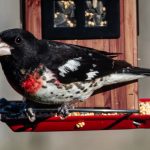Providing adequate shelter is crucial for animal care. Shelter should offer protection from weather and predators while allowing animals to engage in natural behaviors. Different animals have specific shelter requirements.
For instance, horses need stables or run-in sheds, while small pets like rabbits require secure hutches or cages. Chickens need coops for roosting, nesting, and scratching, and larger livestock such as cows and goats require barns or shelters with ample space for movement and rest. Proper nutrition is equally important for animal health and well-being.
Animals require balanced diets tailored to their specific needs. Herbivores like horses and cows need high-fiber, low-sugar diets, while carnivores such as cats and dogs require high-protein, high-fat diets. Fresh, clean water should always be available.
Portion control is essential to prevent overfeeding, which can lead to obesity, or underfeeding, which can cause malnutrition and stunted growth. Regular monitoring of animal condition helps ensure appropriate feeding. Providing proper shelter and nutrition is fundamental to maintaining the physical and mental well-being of animals in our care.
Table of Contents
Key Takeaways
- Providing adequate shelter is essential for the well-being of animals, ensuring protection from the elements and a safe, comfortable space.
- Ensuring proper nutrition is crucial for the overall health and development of animals, with a balanced diet tailored to their specific needs.
- Maintaining clean and dry bedding is important to prevent the spread of disease and provide a comfortable resting area for animals.
- Protecting against predators is necessary to keep animals safe and secure, whether through secure enclosures or other protective measures.
- Providing access to fresh water is vital for hydration and overall health, with clean water sources readily available to animals at all times.
- Managing ventilation and humidity is important to create a comfortable and healthy environment for animals, preventing issues such as mold and respiratory problems.
- Monitoring health and wellness is crucial to identify any potential issues early on and provide appropriate care for animals, ensuring their overall well-being.
Maintaining Clean and Dry Bedding
Choosing the Right Bedding Material
When it comes to bedding, it’s important to choose materials that are safe and appropriate for the specific needs of the animal. For example, horses require bedding that is absorbent and provides cushioning for their joints, while small animals like rabbits and guinea pigs need bedding that is soft and comfortable.
Regular Cleaning and Replacement
In addition to choosing the right type of bedding, it’s important to regularly clean and replace bedding to ensure that it remains clean and dry. This may involve removing soiled bedding on a daily basis and completely replacing it on a regular schedule.
Inspecting for Hazards
Additionally, it’s important to regularly inspect bedding for signs of mold, mildew, or pests, as these can pose serious health risks to animals. Ultimately, maintaining clean and dry bedding is essential for providing animals with a safe and comfortable environment.
Protecting Against Predators

Protecting animals against predators is essential for their safety and well-being. Predators can pose a serious threat to domestic animals, especially those that are kept outdoors or in rural areas. When it comes to protecting animals against predators, it’s important to take proactive measures to prevent encounters.
This may involve installing fencing or barriers around enclosures, using deterrents like motion-activated lights or sound devices, or even employing guard animals like dogs or llamas. In addition to preventative measures, it’s also important to regularly inspect enclosures for signs of damage or weakness that could allow predators to gain access. This may involve repairing fences, reinforcing doors and windows, or removing potential hiding spots for predators.
Additionally, it’s important to be vigilant and observant of any signs of predator activity in the area, such as tracks or scat. Ultimately, protecting animals against predators is essential for their safety and well-being.
Providing Access to Fresh Water
Providing animals with access to fresh water is essential for their overall health and well-being. Water is essential for hydration, digestion, temperature regulation, and many other bodily functions. When it comes to providing water for animals, it’s important to ensure that it is clean, fresh, and readily available at all times.
This may involve regularly cleaning water containers or troughs, checking for leaks or contamination, and refilling as needed. In addition to providing access to water, it’s also important to consider the specific needs of different animals. For example, some animals may require access to water for bathing or swimming, while others may need water that is heated or cooled to a specific temperature.
Additionally, it’s important to consider the environmental conditions and seasonal changes that may affect water availability for animals. Ultimately, providing access to fresh water is essential for ensuring the health and well-being of animals.
Managing Ventilation and Humidity
Managing ventilation and humidity is essential for creating a comfortable and healthy environment for animals. Proper ventilation helps to remove stale air, odors, and moisture from enclosed spaces, while also providing fresh air and oxygen for animals to breathe. When it comes to managing ventilation, it’s important to ensure that enclosures have adequate airflow and ventilation openings that can be adjusted as needed.
This may involve using fans, vents, or windows to regulate airflow and temperature. In addition to ventilation, it’s also important to manage humidity levels within animal enclosures. High humidity can lead to mold growth, respiratory issues, and heat stress in animals, while low humidity can cause dry skin and respiratory irritation.
It’s important to monitor humidity levels using hygrometers and make adjustments as needed using humidifiers or dehumidifiers. Additionally, it’s important to consider the specific needs of different animals when managing ventilation and humidity, as some species may have specific requirements for air quality and moisture levels. Ultimately, managing ventilation and humidity is essential for creating a healthy and comfortable environment for animals.
Monitoring Health and Wellness

Regular Monitoring and Health Checks
This involves regularly observing animals for signs of illness or injury, as well as conducting routine health checks such as taking temperatures, checking heart rates, and inspecting eyes, ears, and mouths. Additionally, it’s important to keep detailed records of each animal’s health history, including vaccinations, medications, and any treatments or procedures.
Seeking Veterinary Care and Staying Informed
In addition to regular monitoring, it’s also important to seek veterinary care as needed for routine check-ups or in the event of illness or injury. Veterinarians can provide valuable guidance on preventative care, nutrition, behavior management, and treatment options for any health issues that may arise. Additionally, it’s important to stay informed about common health concerns for specific species or breeds of animals in order to provide proactive care and prevent potential issues from arising.
Ensuring Overall Well-being and Quality of Life
Ultimately, monitoring the health and wellness of animals is essential for ensuring their overall well-being and quality of life. Providing proper care for animals involves a wide range of considerations including shelter, nutrition, bedding, protection against predators, access to water, ventilation and humidity management, as well as monitoring health and wellness. By addressing each of these aspects with care and attention to detail, animal caregivers can ensure that their charges are healthy, comfortable, safe from harm, and thriving in their environment.
If you’re looking for tips on how to keep chickens warm in the winter, you might also be interested in learning about the mating season for turkeys. Understanding the natural breeding behaviors of poultry can help you better care for your flock during the colder months. Check out this article on mating season for turkeys for more information.
FAQs
What are the key considerations for keeping chickens in winter?
In winter, it’s important to consider the temperature, ventilation, and access to water and food for your chickens.
How can I keep my chicken coop warm in winter?
You can keep your chicken coop warm in winter by insulating the walls, using a heat lamp or heater, and providing plenty of bedding for the chickens to nestle in.
What should I feed my chickens in winter?
In winter, it’s important to provide your chickens with a balanced diet that includes plenty of protein and nutrients to help them stay healthy and maintain their body temperature.
How can I ensure my chickens have access to water in winter?
To ensure your chickens have access to water in winter, you can use heated waterers or manually check and refill their water sources multiple times a day to prevent freezing.
How can I protect my chickens from frostbite in winter?
To protect your chickens from frostbite in winter, make sure the coop is well-ventilated to prevent moisture buildup, and consider using petroleum jelly on their combs and wattles to provide a barrier against the cold.
Meet Walter, the feathered-friend fanatic of Florida! Nestled in the sunshine state, Walter struts through life with his feathered companions, clucking his way to happiness. With a coop that’s fancier than a five-star hotel, he’s the Don Juan of the chicken world. When he’s not teaching his hens to do the cha-cha, you’ll find him in a heated debate with his prized rooster, Sir Clucks-a-Lot. Walter’s poultry passion is no yolk; he’s the sunny-side-up guy you never knew you needed in your flock of friends!







